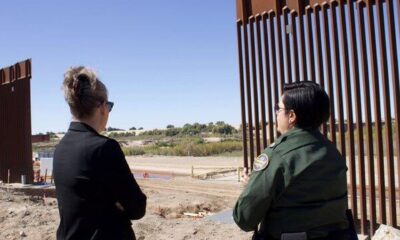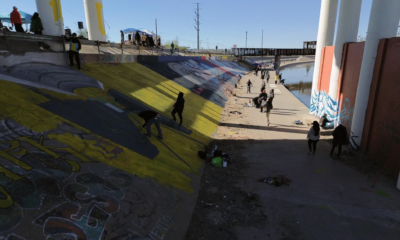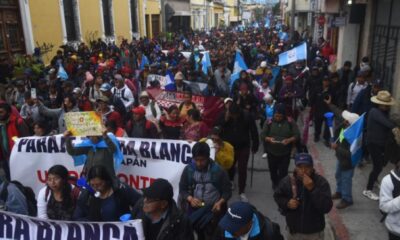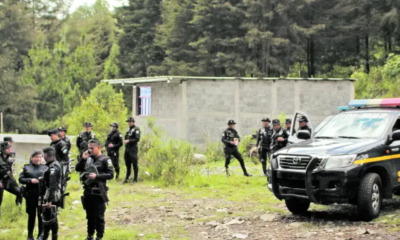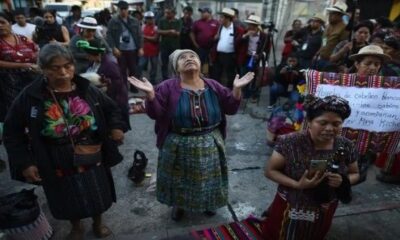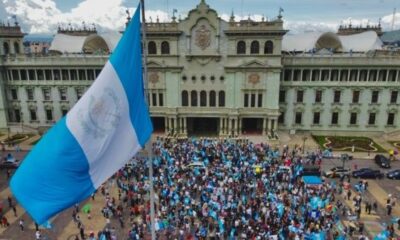Central America
Guatemala opens centers to apply for legal migration to the U.S.
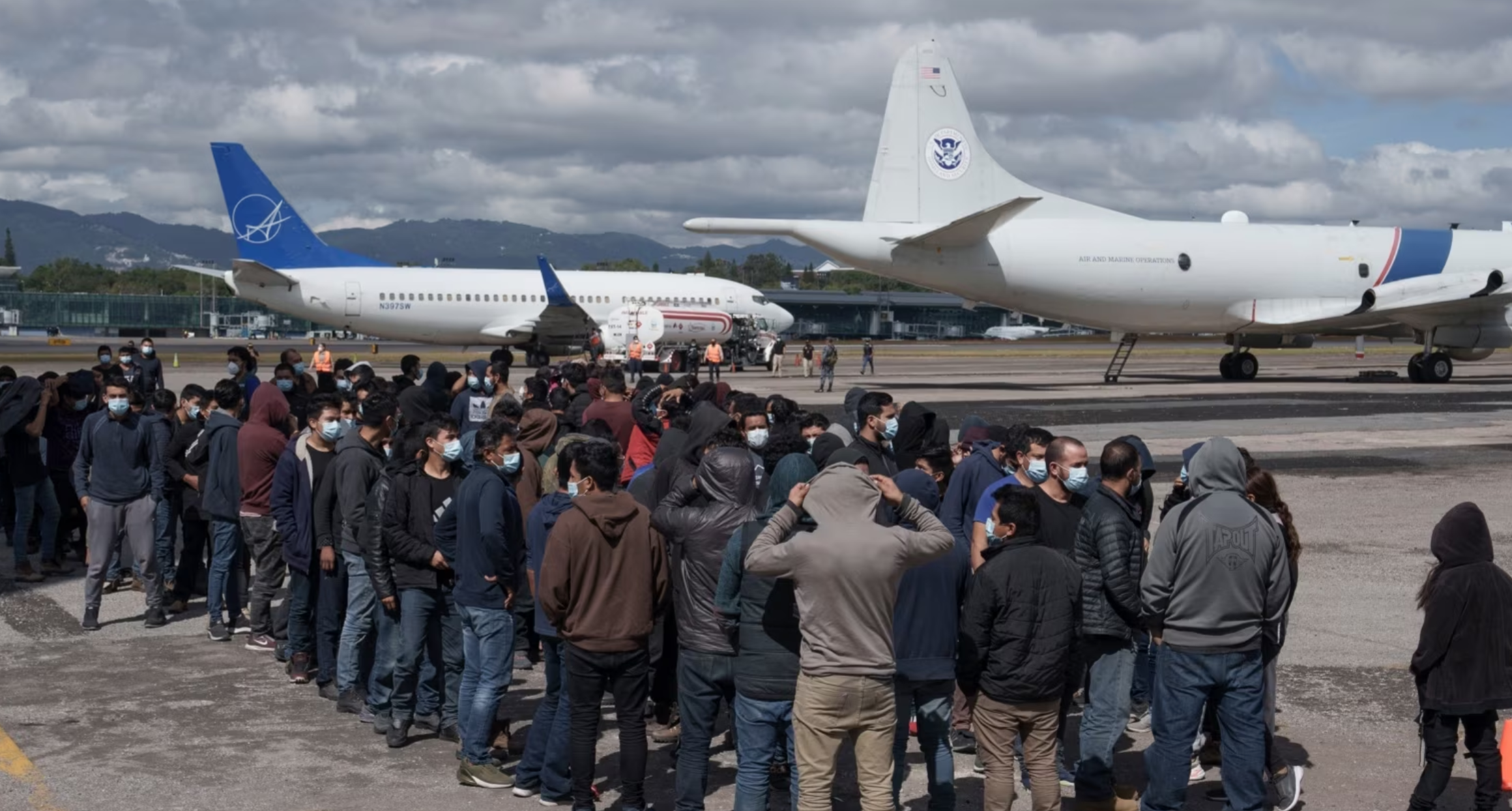
June 13 |
A program announced by the United States and Guatemala to discourage irregular migration from Central America began Monday with the launch of a website that will receive applications for refugee status, family reunification and visas from those seeking to reach U.S. territory.
The program, called Secure Mobility, on the website https://movilidadsegura.org will be administered by the US government, the International Organization for Migration (IOM) and the UN Refugee Agency (UNHCR), according to the Guatemalan Foreign Ministry.
“A form must be filled out, data must be entered; then an appointment will be scheduled in which it will be explained to people personally if they are eligible to opt for any of the existing mechanisms to migrate to the United States,” explained the Secretary of Communication of the Presidency of Guatemala, Kevin Lopez.
For his part, the US Ambassador to Guatemala, William Popp, said that it is “a virtual platform for Guatemalans, Salvadorans, Hondurans, Nicaraguans can access through a virtual way to find opportunities for legal channels for a safe migration, also orderly, between family reunification, work visa opportunities and also to apply for opportunities for the refugee program.”
Although it was announced that the platform would be available to schedule appointments from 10:00 a.m. on Monday morning it was not, and only in the afternoon were those interested able to start their formalities.
The Centers for Attention to Migrants and Refugees (Capmir), are located in the Guatemalan Air Force, Petén, Quetzaltenango, San Marcos, Quiché and Huehuetenango.
With the opening of these centers at origin, financed by the US, Washington is trying to establish migratory actions in countries that, like Guatemala, are used as transit countries by migrants fleeing poverty and violence in the region.
According to the website, all citizens covered by the Central American Free Mobility Agreement (CA-4), that is, citizens of Guatemala, Honduras, El Salvador and Nicaragua who are in their countries, can register.
However, “not all persons requesting an evaluation will qualify or benefit from the program,” the site explains.
Those interested must be 18 years old, have a valid email address, a valid phone number or an international data plan. In addition, they will be asked for a stable internet connection, digital photographs of the applicant and their family members, as well as scanned copy or photographs of their identity documents such as passport and identity card, as long as they are available.
The information is completely free of charge. The pilot plan will run for six months.
The White House announced that these offices will also start working in Colombia on June 19, one week after Guatemala.
Central America
Costa Rica Goes to the Polls as Voters Choose Continuity or Change

Costa Ricans head to the polls today to elect the president of the republic and 57 members of the Legislative Assembly for the 2026–2030 term. Voters must choose between continuing the political project of outgoing President Rodrigo Chaves by supporting the ruling right-wing candidate Laura Fernández, or opting for a change in direction proposed by the opposition.
Fernández, representing the Pueblo Soberano Party (PPS), leads opinion polls with close to 40% of voting intention, bolstered by the outgoing president’s approval rating, which exceeds 50%. Chaves is barred from seeking immediate re-election under Costa Rican law.
Trailing far behind is Álvaro Ramos of the National Liberation Party (PLN), with less than 10% support. He is followed by Claudia Dobles of the Citizen Agenda Coalition (CAC), Fabricio Alvarado of New Republic (NR), and Ariel Robles of the Broad Front (FA), each polling between 3% and 5%. Undecided voters, who account for more than 30% of the electorate, could determine the outcome of the presidential race or force a runoff.
In a statement, Costa Rica’s Supreme Electoral Tribunal (TSE) reaffirmed its commitment to transparent and secure elections. “As has been the case for more than 76 years of democratic life in our country, the Supreme Electoral Tribunal guarantees all Costa Ricans that the national elections to be held this Sunday, February 1, will meet the highest standards of security and absolute transparency, allowing us to continue enjoying electoral processes in peace and freedom,” the institution said.
Authorities reported that 53,251 party observers will take part in the electoral process. Of these, 12,472 belong to the Social Christian Unity Party, 11,524 to Pueblo Soberano, 10,451 to the PLN, and 4,141 to the Citizen Agenda Coalition, among others. In addition, six political parties have sworn in 7,520 members of polling station boardsdeployed nationwide.
Central America
U.S. and Guatemala Sign Trade Deal Granting Zero Tariffs to Most Exports

The United States signed a reciprocal trade agreement with Guatemala on Friday, under which 70.4% of Guatemalan exports will enter the U.S. market tariff-free.
Guatemalan President Bernardo Arévalo highlighted the importance of the agreement, stating that it creates a framework of cooperation, certainty, and new opportunities for producers, workers, and entrepreneurs in the country. His remarks were shared in a video published on his official social media channels.
In 2025, 30.3% of Guatemala’s total exports were destined for the United States, amounting to approximately $4.3 billion. As a result, the agreement is expected to directly benefit key sectors of the Guatemalan economy, including agribusiness, manufacturing, and the textile industry.
“Today we have taken another step toward consolidating a country that, when it moves forward united, generates confidence, attracts investment, and creates real development opportunities for all its people,” Arévalo added.
The agreement with Guatemala follows a similar trade deal signed by the United States with El Salvador on Thursday, which includes the elimination of a 10% tariff on Salvadoran imports.
Central America
Panama Supreme Court Strikes Down Panama Ports Concession as Unconstitutional

Panama’s Supreme Court of Justice has ruled unconstitutional the concession contract granted in 1997 to Panama Ports Company (PPC), a subsidiary of the Chinese conglomerate CK Hutchison, which operates two strategic ports along the interoceanic canal. The decision was announced on Thursday, January 29, 2026, following two lawsuits filed by the Comptroller General’s Office.
The ruling directly affects the management of the ports of Balboa, on the Pacific coast, and Cristóbal, on the Atlantic side, both of which have been operated by the company for nearly three decades. According to Panama’s Comptroller General, Anel Flores, an audit uncovered irregularities in the contract that resulted in more than $1.3 billion failing to enter state coffers.
“It is a predatory contract, abusive to the interests of the country,” Flores stated.
The Supreme Court determined that Law 5 of 1997, its subsequent amendments, and the automatic extension granted in 2021 are unconstitutional. The ruling noted that the contract renewal took place without adequate oversight and amid allegations of corruption, despite the Panamanian state holding only a 10% stake in the company.
-

 International4 days ago
International4 days agoU.S. Senate Rejects Budget, Bringing Government Closer to Shutdown Amid DHS Dispute
-

 International5 days ago
International5 days agoFootball Fan Killed in Clashes After Colombian League Match
-

 Central America5 days ago
Central America5 days agoGuatemala President Says Starlink Terminal Found Inside Prison
-

 International5 days ago
International5 days agoMissing Spanish Sailor Rescued After 11 Days Adrift in Mediterranean
-

 International5 days ago
International5 days agoRubio Says U.S. Could Participate in Follow-Up Russia-Ukraine Talks
-

 Central America3 days ago
Central America3 days agoPanama Supreme Court Strikes Down Panama Ports Concession as Unconstitutional
-

 International4 days ago
International4 days agoStorm Kristin Kills Five in Portugal, Leaves Nearly 500,000 Without Power
-

 Central America3 days ago
Central America3 days agoU.S. and Guatemala Sign Trade Deal Granting Zero Tariffs to Most Exports
-

 International4 days ago
International4 days agoMan Arrested After Vehicle Crashes Into Jewish Institution in Brooklyn
-

 International4 days ago
International4 days agoTrump Says Putin Agreed to One-Week Halt in Attacks on Ukraine Amid Extreme Cold
-

 Central America21 hours ago
Central America21 hours agoCosta Rica Goes to the Polls as Voters Choose Continuity or Change









































































